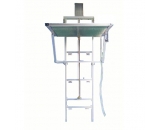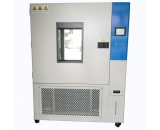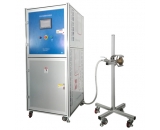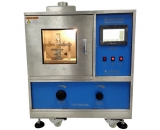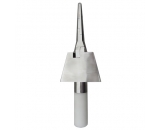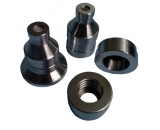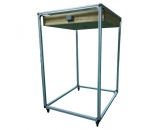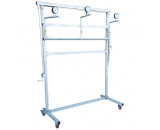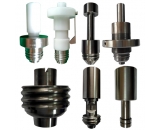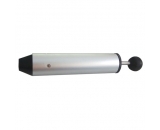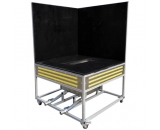|
|
UL153的倾倒测试, 请参照以下章节,不要主观臆想,请客观参照标准
132 Stability Test
r8 Z+ J g5 i# ?- {4 v4 G132.1 General
9 a0 }8 Q8 V- k2 J2 j132.1.1 Freestanding units and units intended for both wall and table support shall be tested as described
; T" _: c: Z: M0 Iin 132.2 and as modified in 132.3 when provided with a flexible or articulated arm, or as modified in 132.4
1 u" A0 c, h4 dwhen provided with provisions for loading. Compliance criteria is described in 132.5.
/ P3 L S; B) S }6 J+ ~Exception: A portable luminaire intended for placement on a shelf and that complies with the Normal % d& m+ X6 [( n
Temperature Test in Sections 124 – 126 in any position and the Drop Test in Section 134 is not required
[% Q1 u9 I4 j7 Q8 v+ wto comply with this requirement.
4 r9 f5 m5 {7 T, g% a# U h7 x4 R132.2 Test method – general
6 q% d5 A! E% I: Z132.2.1 The portable luminaire, complete with glassware or shade provided as a part of the lamp or with 6 s( Y c. T" H$ n# R/ A
a representative cloth-and-wire shade when none is provided, is to be placed on the inclined plane and
* c4 S9 I& F/ u4 F! w" `: Nturned to a position that results in tip over. When the shade is supported by an adjustable harp, or clips : I4 F" R# g# |3 e u
onto the lamp, it is to be positioned so that the lamp-to-shade spacing is equidistant to the lamp.
: s" t3 A$ X/ r) s132.2.2 The plane is to be inclined at an angle of 8 degrees with the horizontal.
7 M( V! J. n$ F- r, I8 P! U$ o/ z132.2.3 For lamps having toy-like appearance the plane is to be inclined to an angle of 15 degrees.
) X, X% `+ e! Z R9 N) v132.3 Test method – units with flexible or articulated arm
# z, l' F# o1 A; u132.3.1 When the portable luminaire has a flexible or articulated arm, the arm is to be bent before the
* }) F9 r9 R( } R; plamp is placed on the inclined plane, starting at the lower end of the arm, to form a quarter circle that a
$ B4 s! n( w9 \8 Q5 H6 oline joining the ends of the arm make an angle of 45 degrees with the horizontal. When a flexible or 0 m3 }' ]$ V# I* x8 E8 k/ S6 ~
articulated arm is off-center with respect to the base, the arm is to be bent in the direction that results in
6 U& {& a0 h( D2 f1 n# M4 p/ |2 f/ m0 }tip over. When the unit has more than one flexible or articulated arm, one of the arms is to be adjusted 3 `; Q6 \9 Y5 f
as for a unit having a single arm, and the other arm or arms are to be extended vertically.
% X/ M) z: C8 @* r( i- dException No. 1: When the unit is not stable on a flat horizontal surface in a particular position, the unit ) a* Y, V3 `% c8 ~
is not required to be tested in that position.
0 h( z& E1 {) \% O+ N) aException No. 2: Any position of intended use as specified in the manufacturer’s instructions is determined # F) ~7 ?- {- w
to be the normal operating position. / N* H8 N4 Y7 f2 c. F$ E
132.4 Test method – units having provisions for loading
; ~* }; M9 @( [1 [; A132.4.1 A portable luminaire having one or more of the following: - ^* b! ^3 j, x7 ?" _: H7 B
a) Off-center shelf;
, J/ x. ?- H$ ]7 h, i0 C9 A8 g1 @b) Adjustable shelf; or / p/ P0 k6 j" Q1 s2 u. l
c) Other provision for loading;
( h+ O5 }1 i# Z' m8 V8 k0 hshall comply with the stability test in this section when loaded as described in 132.4.2. / l# F1 `+ A5 \0 t
132.4.2 For the stability test of a portable luminaire as described in 132.4.1, each shelf or other provision
! X9 e& X7 }1 y; @! M! w- x3 X: Pfor loading is to be:
$ ^, D3 d: t* Ya) Adjusted to the position that results in least stability; and
" L' _( }" V# R% Q0 Rb) Loaded with the maximum load specified in the marking required in 169.10; or
7 o$ }$ S" ?% G8 d! Pc) Loaded with a 15 pound (6.81 kg) weight secured to prevent movement and centered on the 1 q1 h3 O! z2 {
highest shelf or rack.
}/ }1 V3 E7 u* f6 P: p& p132.5 Test results , n8 I6 T" ?( s% Q, a( F% F
132.5.1 The results of the test do not meet the intent of the requirement when the portable luminaire tips ' n% q& M/ i$ A9 t* j; Y
over. ; L; B/ w' N8 r& k1 o f" q, M
- s( q5 c- e: j$ ~, V' }) x1 M9 m18 Portable Luminaires Having Play Value , r- K5 _! H) ^
18.1 A portion of a portable luminaire that has play value for children eight years or less in age and is
; u" N% T) U/ Y( ^intended to be removed from the unit and played with (for example a plush doll not integral with the
$ [: Y- `0 z9 O. aluminaire) shall comply with the Federal Regulations for toys and children’s articles. It is not possible to
5 v9 e; b' ~9 r6 Z0 ^specify the conditions of tests for all constructions; however, the tests shall include evaluation of impact,
4 l9 f8 ^- b8 {6 Z: |bite, flexure, torque, tension, compression, sharp point, sharp edge, and small parts. 7 y1 _* r1 |; |) c( x! ]! c
18.2 The portable luminaire shall not overturn when tested in accordance with the Stability Test, Section
& q. q* Q0 R& `: c& a7 g& _132, with a 15 degree inclined plane. ( u0 W/ B0 \( G) b
18.3 A toy or stuffed animal suspended from a unit shall be designed for unexpected, forceful removal # m: C* j) C! D4 E! p5 a% L
and shall comply with the requirements in the Test for Suspended Toys, Section 158. + m4 c4 F, g4 l m$ Q! P6 h
18.4 The portable luminaire shall be marked in accordance with the requirements in 169.11. ( A' _7 _3 G0 @( C
Exception: The marking is able to be modified to indicate that the risks are associated with the luminaire 6 l- d' `1 b" i- R. P3 U5 Y9 X
portion and not to the separable portion having play value. 4 E6 Z! g3 u. w. H6 B* t! J
0 V9 P9 b# }4 D/ x3 \4 Q, \! v! G- w1 r& U1 Y
WORK LIGHTS 0 W9 N8 x% ^4 G# s' b7 f
116.3 Stability tests . . . . . . . . . . . . . . . . . . . . . . . . . . . . . . . . . . . . . . . . . . . . . . . . . . . . . . . . . . . . . .113 # r( }8 e2 m! V/ s" w9 M6 F# c- Y
116.3 Stability tests
7 R# C( g3 I6 C2 Q116.3.1 A work light is to be subjected to the Stability Test, Section 132, at an incline of 8 degrees for
" a# j c8 r8 _: @" w2 \any possible use adjustment. 2 m5 k% F6 G6 @( u: V
116.3.2 A work light complying with Exception No. 2 of 116.2.1 is to be subjected to the Stability Test,
, u- {& t0 N) K' x5 f' F2 S2 R8 p' tSection 132, at an incline of 33 degrees. ! D* {4 g( j+ m
116.3.3 The stability test in 116.3.1 and 116.3.2 is to be conducted with any fuel and integral storage 7 j8 y# k9 _4 v% D& q/ U7 k, ?
compartments empty.
, v0 k2 e/ m/ ~# N# @# X
; N6 U+ v h% y6 G: X! f
, i+ a' Y* d; `- ^4 V+ x# e2 |TUNGSTEN-HALOGEN UNIT 0 V# ^7 w7 N; @1 u, S, J( j0 k
147 Tungsten-Halogen Torchiere Stability Test . . . . . . . . . . . . . . . . . . . . . . . . . . . . . . . . . . . . . . . . . . .153 3 [0 `* s- |) N0 A+ p p5 w
147.1 General
( ~$ E* X% l- Z. ~8 H- f147.1.1 A floor mounted tungsten-halogen torchiere style portable luminaire not provided with a tipover
# g$ [+ _) F& z4 Q r! }switch shall be tested as described in 147.2. Compliance criteria is described in 147.3. 5 [; a5 j; a5 c: d" b, d
147.2 Test Method
4 c( [7 E% ?4 f( h: D5 ^147.2.1 The unit is to be placed on a plane inclined at an angle of 12 degrees with the horizontal and
7 i4 \* K, i& G, Aturned to any position of use presenting the greatest risk of tip over.
( Z5 l U) K6 E147.3 Test Results
/ \7 {" R# S! c9 ?147.3.1 The results of the test do not meet the intent of the requirement when the unit tips over. |
|



 窥视卡
窥视卡 雷达卡
雷达卡 发表于 2008-5-29 10:42
发表于 2008-5-29 10:42
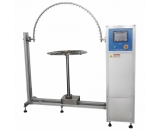

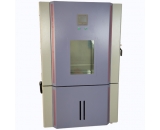
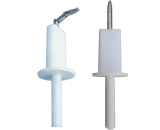
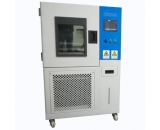
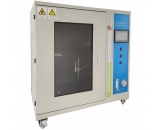
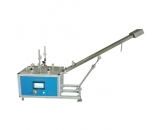
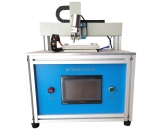
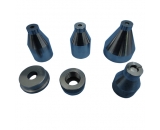
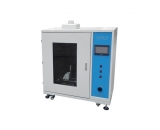
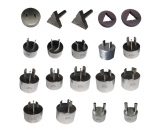
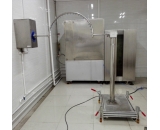
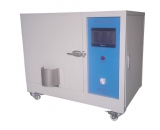
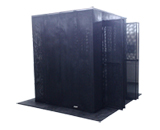
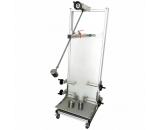
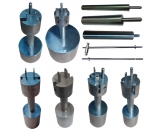
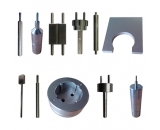
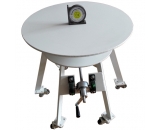
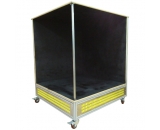
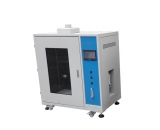
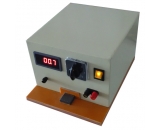
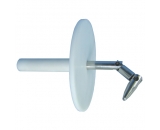
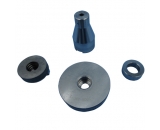
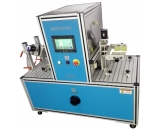
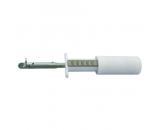
 提升卡
提升卡 置顶卡
置顶卡 沉默卡
沉默卡 喧嚣卡
喧嚣卡 变色卡
变色卡 抢沙发
抢沙发 千斤顶
千斤顶 显身卡
显身卡 发表于 2008-5-29 16:25
发表于 2008-5-29 16:25



